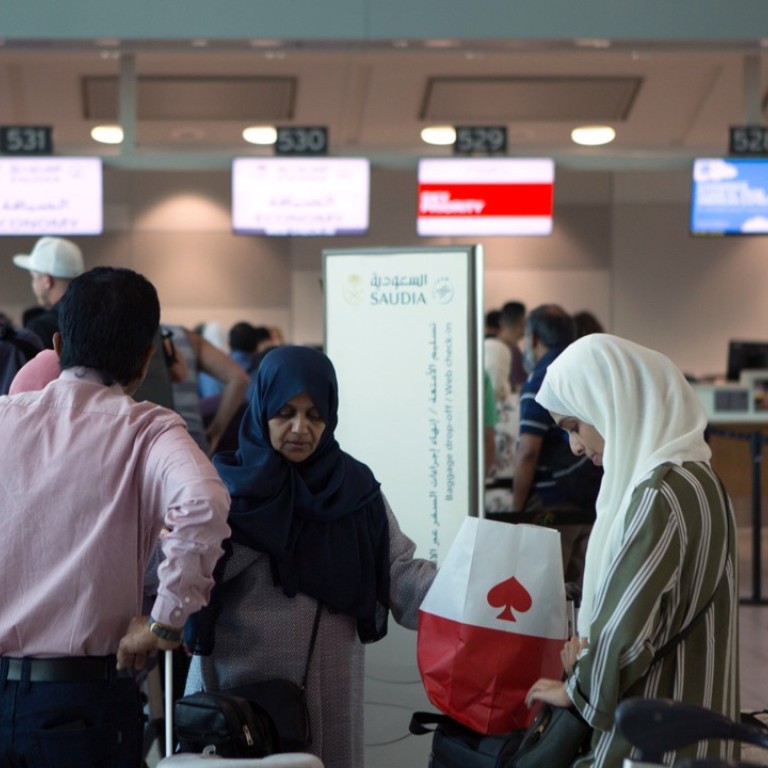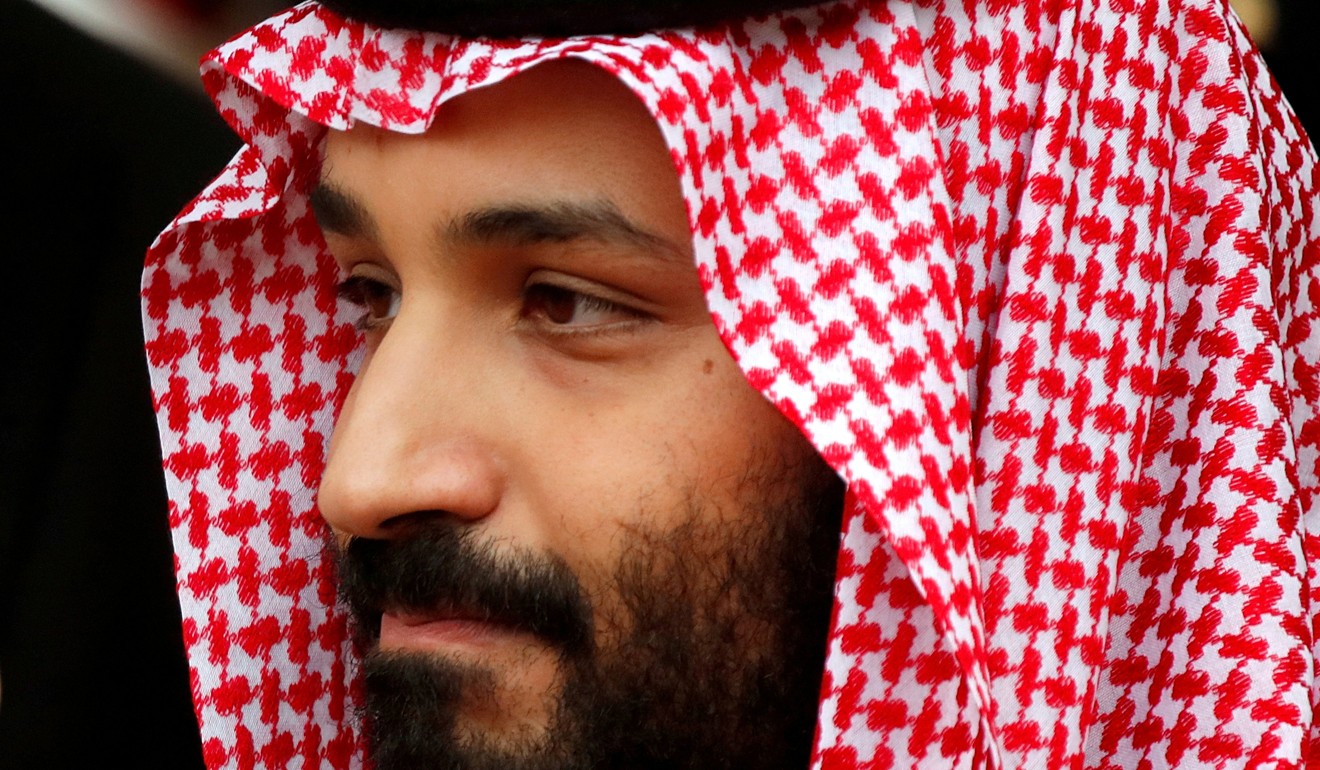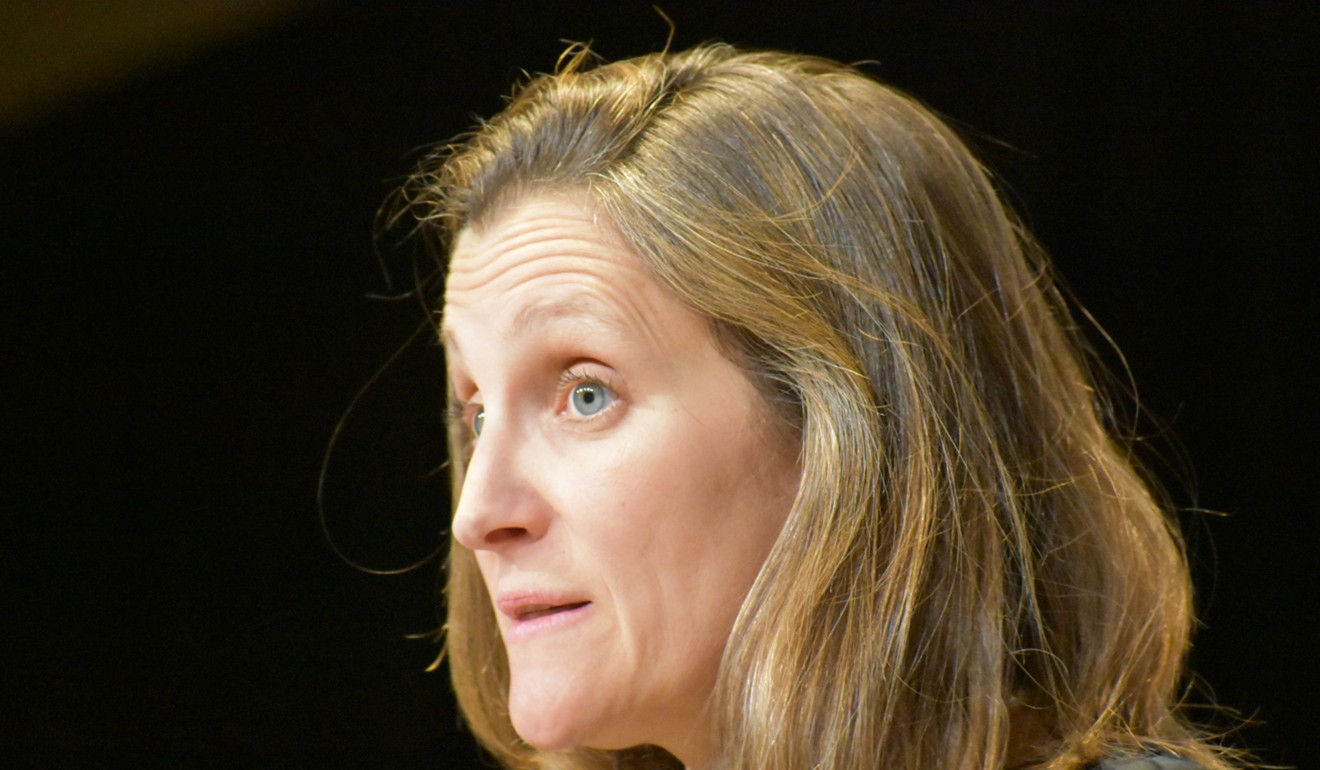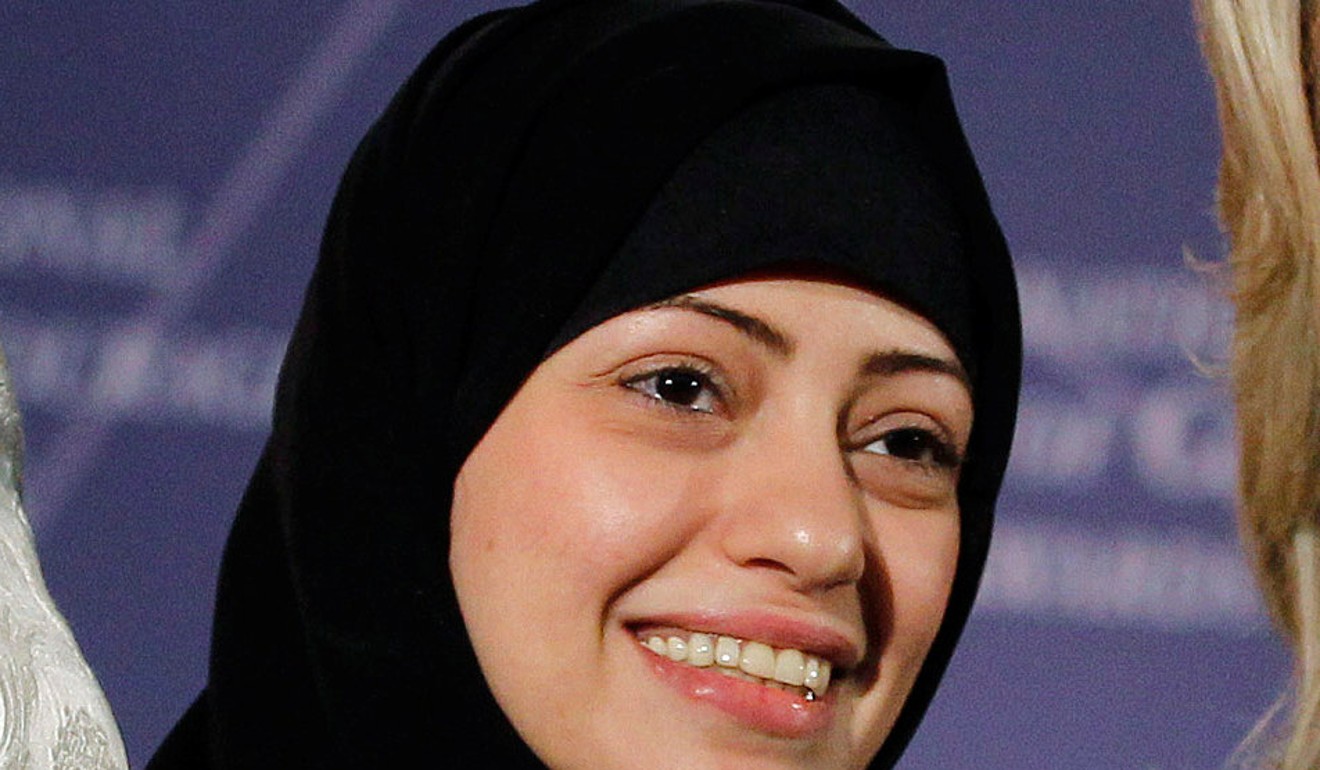
US is staying out of growing dispute between Canada and Saudi Arabia, at least publicly
Senior US official says Trump administration is privately trying to coax Saudis to ease their response to Ottawa’s statement of support for activists
The Trump administration is privately trying to coax Saudi Arabia to dial back hostilities with Canada even as the US maintains a hands-off public approach to the escalating dispute between the two key allies, a senior US official said on Friday.
The US is now trying to do behind-the-scenes damage control after being caught off guard by Saudi Crown Prince Mohammed bin Salman’s move this week to expel the Canadian ambassador, freeze new trade deals and cancel direct flights to Toronto on Saudi Arabia’s state airline, according to the official, who spoke on condition of anonymity.
US officials believe Prince Mohammed thinks he has license from the US to confront Canada, exploiting perceived tension between Washington and Ottawa over trade that emerged at the end of a Group of Seven summit in June.
At the same time, President Donald Trump and his top advisers – especially his son-in-law, Jared Kushner – have been cultivating closer ties to the crown prince; Kushner is said to want Saudi Arabia, a key supplier of oil, to play a central role in an Israeli-Palestinian peace plan.
The Trump administration has maintained a laissez-faire approach to the Canada-Saudi row, refusing to intervene publicly in a crisis that has already created a series of diplomatic headaches and, officials believe, could take some time to resolve.
Saudi diplomats provided their American counterparts with an explanation for their recent actions, which followed the release of a statement by Canada that it was “gravely concerned” by the arrest of Saudi activists and called for the immediate release of women’s rights campaigners Samar Badawi and Nassima al-Sadah, according to the official. Both activists were arrested in Saudi Arabia in July, according to Human Rights Watch.

But the extraordinary response on the part of the Saudis has led some within the Trump administration to conclude that Prince Mohammed is using the episode to demonstrate his control within the country – and that avenues to reform travel through him.
The prince has sought to foster an international image as a social and economic reformer, but he has also ordered the detention of dozens of royal family members, government officials and billionaires in what the Saudi government described as an anti-graft crackdown.
Global Affairs Canada, which handles the government’s diplomatic affairs, declined to comment on diplomatic correspondence, and the office of Prime Minister Justin Trudeau did not respond to a request for comment.

Canadian Foreign Minister Chrystia Freeland has not spoken yet with US Secretary of State Mike Pompeo or any other US counterpart on the Saudi issue since it erupted.
However, Freeland has spoken to her counterparts in Germany, Sweden and the United Arab Emirates, according to a Canadian government official who spoke on condition of anonymity because of a lack of authorisation to speak publicly.
Canada does not have any official word yet on what precisely Saudi Arabia has ordered in terms of dumping assets, only what the Financial Times and other news organisations have reported, the official said.
The Saudi reaction was well beyond anything Canada had seen in the past, despite previous public comments by Ottawa on the issue of women’s rights activist arrests and human rights in the kingdom in general.
Naif Alsudairy, the Saudi ambassador in Ottawa, said that the Canadian statement was troubling because it implied a judgment on the kingdom’s legal system. “We cannot just give people orders about the way we think,” he told the Globe and Mail newspaper on Friday.

State Department spokeswoman Heather Nauert, asked about the spat during a press conference, said that “both sides need to diplomatically resolve this together.”
“We cannot do it for them,” Nauert added. “They need to resolve it together.”
The US has decided to work privately on a resolution, the official said, including attempts to prevent the Saudis from doing more than they’ve already done.
At Trump’s urging, Saudi Arabia has boosted oil production in recent months, limiting the impact on consumers of the president’s decision to reimpose sanctions on Iran.
Saudi Arabia is also seen as the linchpin to the president’s proposal to create a new security alliance in the Middle East – a so-called Arab Nato – intended to limit Iranian influence in the region.
Regardless of motivation, the US silence on the issue has been noticed in Ottawa. The lack of an American response is “a glimpse of what the world looks like without the US advocating for human rights,” Roland Paris, a University of Ottawa professor and former Trudeau foreign policy adviser, said.
“Right now there is very little solidarity,” he added.

